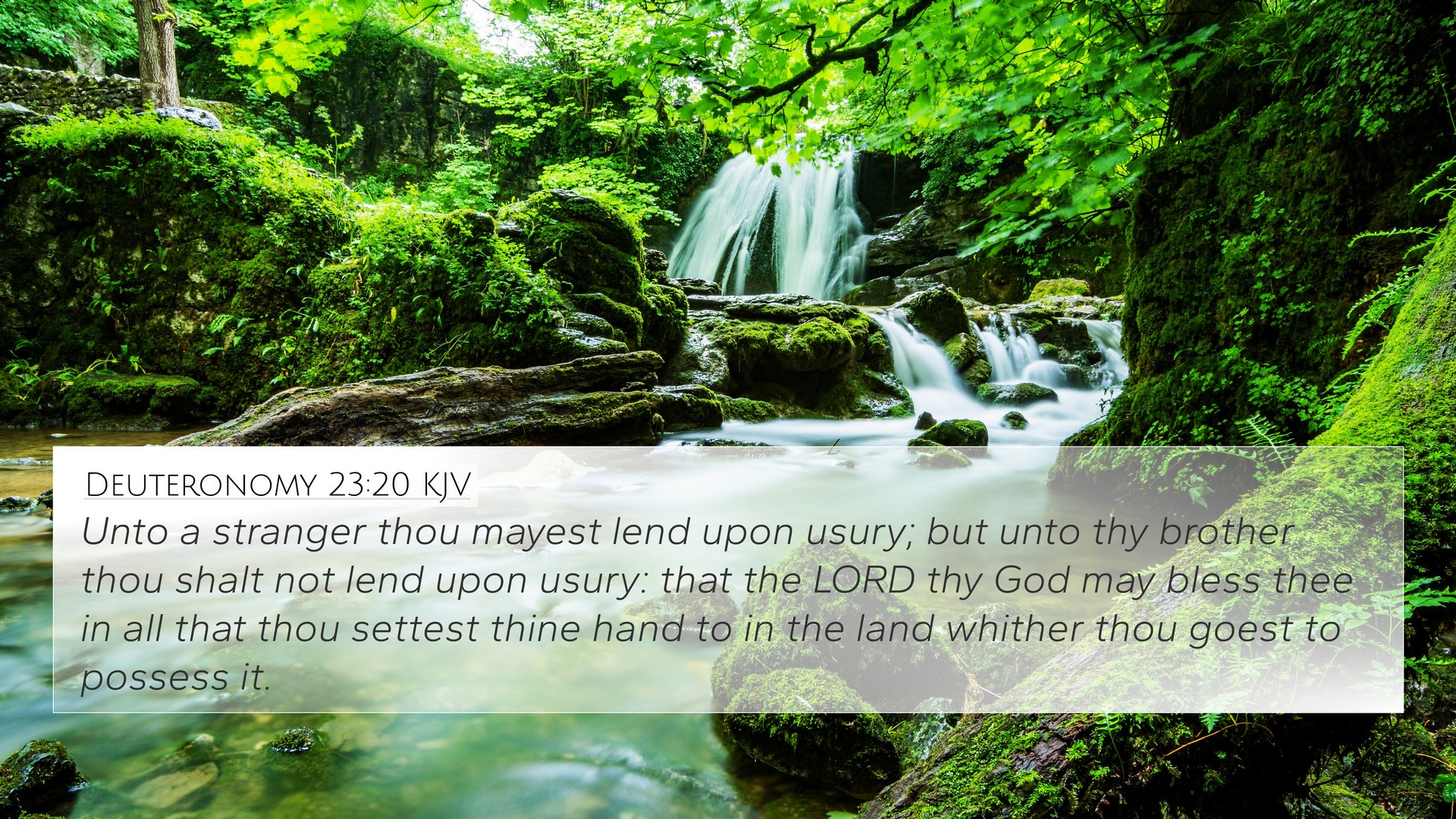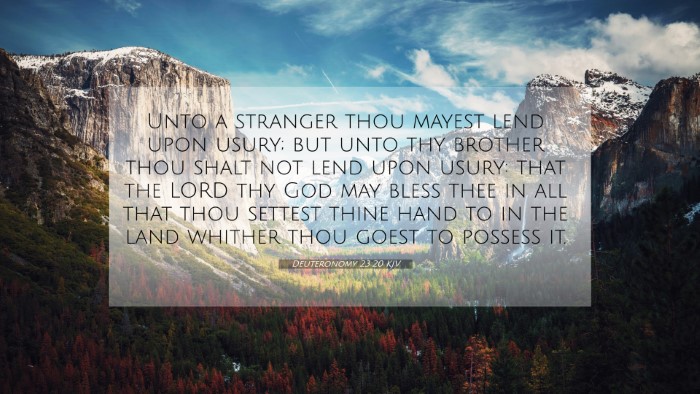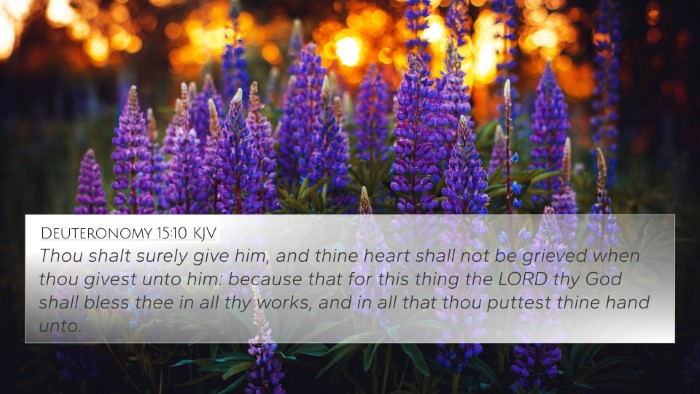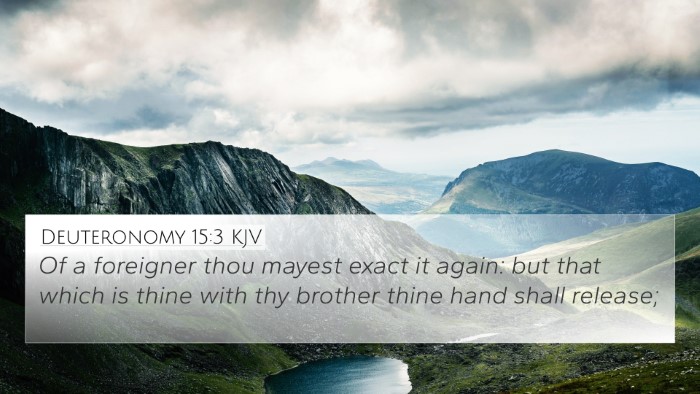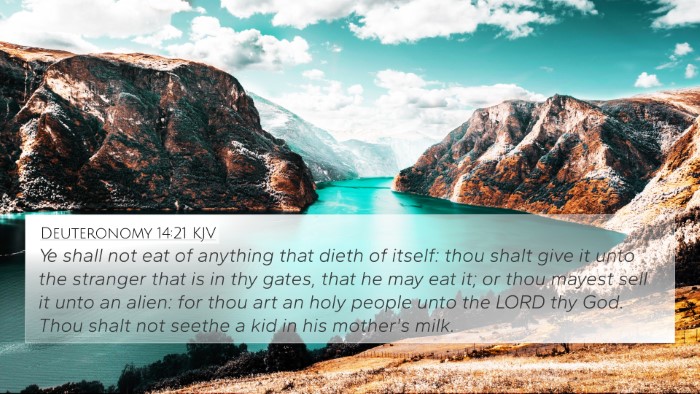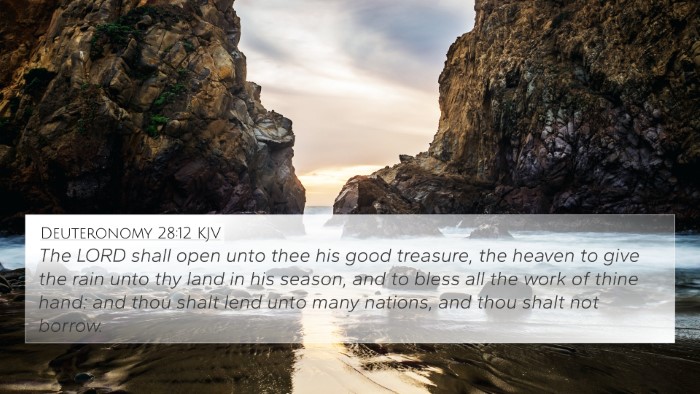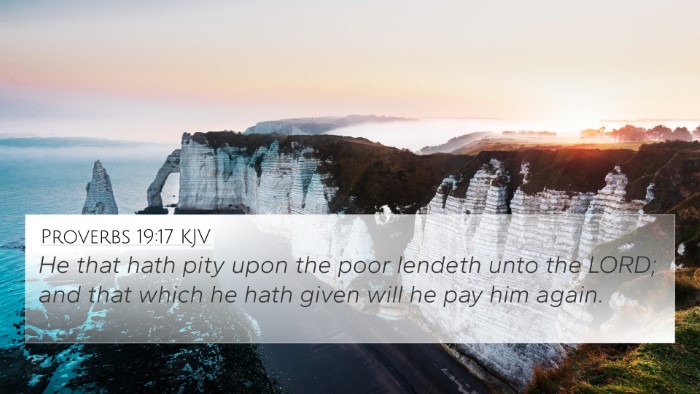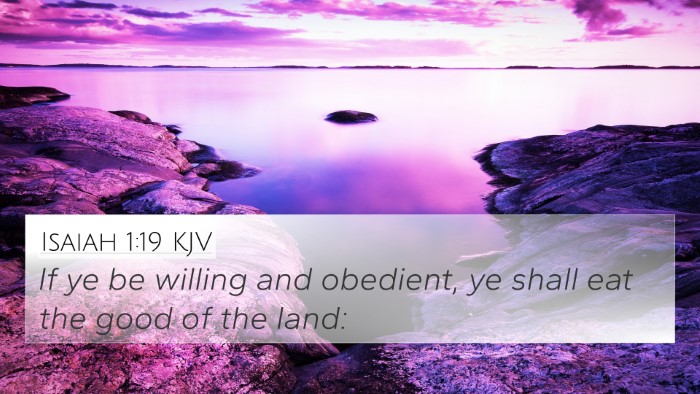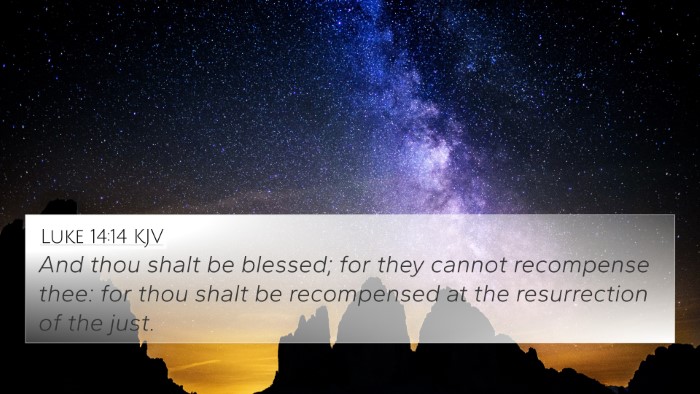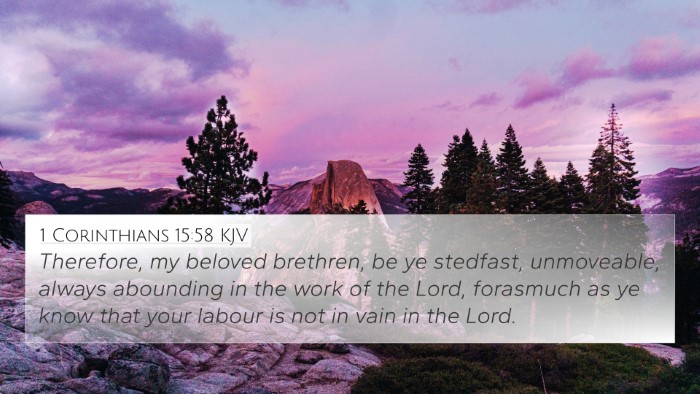Understanding Deuteronomy 23:20
Bible Verse: Deuteronomy 23:20 - "Unto a stranger thou mayest lend upon usury; but unto thy brother thou shalt not lend upon usury: that the Lord thy God may bless thee in all that thou settest thine hand to in the land whither thou goest to possess it." This verse sets forth principles regarding financial dealings with fellow Israelites and non-Israelites.
Summary of Meaning
The verse indicates a distinction in the laws governing lending practices between Israelites and foreigners. It emphasizes God's expectation for His people to care for one another, as seen through the prohibition of charging interest among brethren, while allowing interest from outsiders.
Key Insights from Commentaries
-
Matthew Henry:
Henry interprets this verse as an illustration of God's mercy and justice. He emphasizes the importance of generosity and compassion in dealing with family and neighbors, promoting mutual support in the community.
-
Albert Barnes:
Barnes elucidates the significance of lending without interest as an expression of brotherhood. He highlights the spiritual implications of treating fellow Jews with kindness and trust, reflecting on how these actions align with God's blessings.
-
Adam Clarke:
Clarke points out that the practice of usury (charging interest) among the Israelites reveals more than just financial ethics; it embodies their covenant relationship with God and each other, showing that love must guide their dealings.
Related Bible Cross-References
- Exodus 22:25: "If you lend money to any of my people with you who is poor, you shall not be like a moneylender to him, and you shall not exact interest from him."
- Leviticus 25:36: "Take no interest from him or profit, but fear your God, that your brother may live beside you."
- Psalm 15:5: "Who does not put out his money at interest and does not take a bribe against the innocent. He who does these things shall never be moved."
- Proverbs 28:8: "Whoever multiplies wealth by taking interest and profit gathers it for him who is generous to the poor."
- Luke 6:34-35: "And if you lend to those from whom you expect to receive, what credit is that to you? Even sinners lend to sinners, to get back the same amount. But love your enemies, and do good, and lend, expecting nothing in return."
- Matthew 25:27: "Then you ought to have invested my money with the bankers, and at my coming I should have received what was my own with interest."
- 1 Timothy 6:10: "For the love of money is a root of all kinds of evils. It is through this craving that some have wandered away from the faith and pierced themselves with many pangs."
Comparative Analysis and Thematic Connections
This verse prompts essential themes in Biblical ethics concerning lending and generosity. By contrasting the treatment of brethren and strangers, it exemplifies the broader narrative of justice, mercy, and community responsibility throughout Scripture.
Thematic Bible Verse Connections
Connecting themes in Deuteronomy 23:20 with other Biblical texts can enrich understanding. The charges against usury among brothers can also be linked with ideas of stewardship and community support found in:
- Biblical calls for care for the poor and marginalized in Proverbs and Psalms.
- New Testament teachings on love, generosity, and financial stewardship in the Gospels and Epistles.
- The overarching principles of community, justice, and mercy from the Torah to the New Covenant.
Tools for Bible Cross-Referencing
To dive deeper into passages and their connections, various tools are available:
- Bible Concordance: Helps in locating specific verses and themes.
- Bible Cross-Reference Guide: Provides lists of related verses for extensive study.
- Cross-Reference Bible Study: Offers methods to identify and connect scriptural themes.
- Bible Reference Resources: Various collections provide insights into linkages among verses.
Conclusion
In conclusion, Deuteronomy 23:20 encapsulates a crucial part of the socio-ethical framework that God has established for His people. By observing the guidelines on lending, it promotes not only financial ethics but a deeper relational commitment among believers. The implications extend into contemporary discussions on commerce, community responsibility, and the essence of love in financial dealings.
Final Thoughts
Exploring the connections between Bible verses can enhance one’s understanding of their context and application in life. The principles highlighted in Deuteronomy 23:20 echo throughout both the Old and New Testaments, inviting believers to a life of integrity, generosity, and selflessness.
